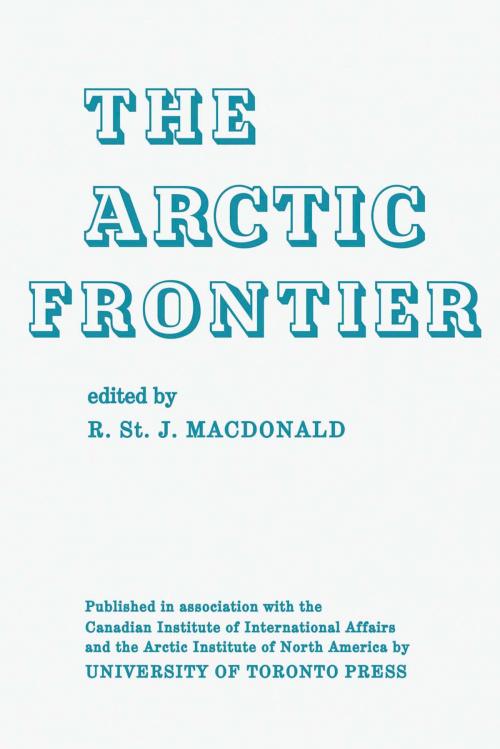The Arctic Frontier
Nonfiction, Science & Nature, Nature, Fish & Ocean Life, Oceans & Seas, Social & Cultural Studies, Political Science, International, International Relations| Author: | ISBN: | 9781487586416 | |
| Publisher: | University of Toronto Press, Scholarly Publishing Division | Publication: | December 15, 1966 |
| Imprint: | Language: | English |
| Author: | |
| ISBN: | 9781487586416 |
| Publisher: | University of Toronto Press, Scholarly Publishing Division |
| Publication: | December 15, 1966 |
| Imprint: | |
| Language: | English |
The idea of the Arctic Ocean as a mediterranean sea is a shock to those of us—and that includes most of us—who cannot shake ourselves free of the Mercatorean vision. Yet this theme is repeated by many of the eminent ocntributors to this volume: as Michael Marsden states, "IT is difficult to impress upon the public and industry at large that the most essential quality of the Arctic is not cold, or gold, or polar bears, but a central position in the world community." This book, then, is about the North as a frontier, and about Canada's relations with the world beyond that frontier. It is about the Arctic community of which Canada is one of the major members, along with the Soviet Union, the United States, Denmark, Iceland, and Norway. It is also an exercise in perspective. Canadians have long been aware of the significance of their Atlantic and Pacific frontiers and of the implications of their Southern frontier. This volume points out that Canada is not a three-sided country. While it does not neglect the military importance of the Arctic, it endeavours to widen the scope of interest. But it does not present the familiar arguments about the surpassing importance of the Arctic. It deflates as well as inflates. Its purpose is to assess as precisely as possible the implications of the Arctic frontier, not to induce either visions or nightmares. It is intended not only for Canadians but for all those who are interested in the polar regions or in the shape of the world at large.
The papers in this volume were assembled in collaboration by the Canadian Institute of International Affairs and the Arctic Institute of North America.
The idea of the Arctic Ocean as a mediterranean sea is a shock to those of us—and that includes most of us—who cannot shake ourselves free of the Mercatorean vision. Yet this theme is repeated by many of the eminent ocntributors to this volume: as Michael Marsden states, "IT is difficult to impress upon the public and industry at large that the most essential quality of the Arctic is not cold, or gold, or polar bears, but a central position in the world community." This book, then, is about the North as a frontier, and about Canada's relations with the world beyond that frontier. It is about the Arctic community of which Canada is one of the major members, along with the Soviet Union, the United States, Denmark, Iceland, and Norway. It is also an exercise in perspective. Canadians have long been aware of the significance of their Atlantic and Pacific frontiers and of the implications of their Southern frontier. This volume points out that Canada is not a three-sided country. While it does not neglect the military importance of the Arctic, it endeavours to widen the scope of interest. But it does not present the familiar arguments about the surpassing importance of the Arctic. It deflates as well as inflates. Its purpose is to assess as precisely as possible the implications of the Arctic frontier, not to induce either visions or nightmares. It is intended not only for Canadians but for all those who are interested in the polar regions or in the shape of the world at large.
The papers in this volume were assembled in collaboration by the Canadian Institute of International Affairs and the Arctic Institute of North America.















